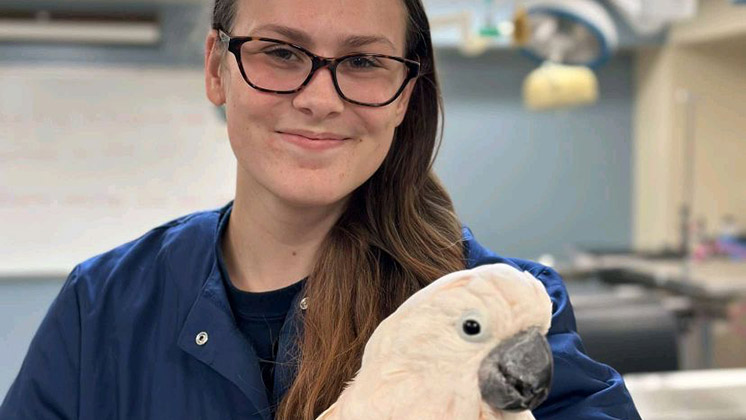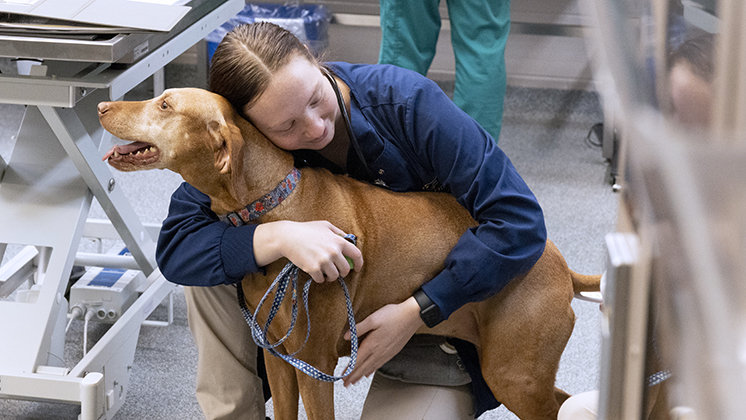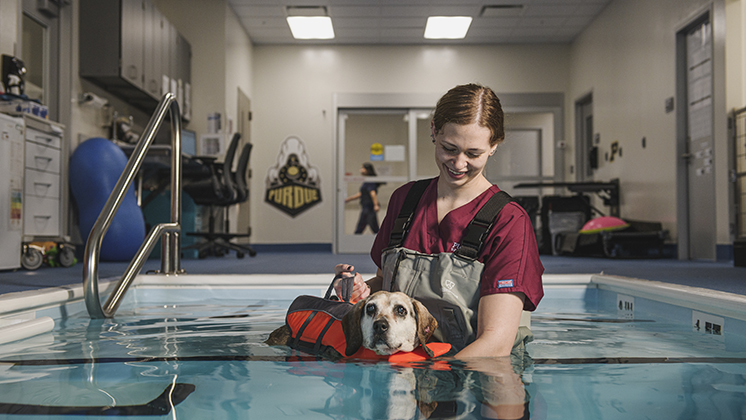What is an Accredited Vet Tech Program?

by Paige Allen, MS, RVT and Josh L. Clark, MS, RVT
When choosing a veterinary technology, one of the most crucial aspects to consider is whether or not it is accredited by the American Veterinary Medical Association (AVMA). But what does this mean, and why is it important? This article will delve into the concept of accreditation and its significance in the field of veterinary technology.
Understanding Accreditation
Accreditation is a process of evaluation that many educational institutions or programs must complete to ensure they meet certain standards of quality and competence. It is performed by an external body that is recognized for its authority in the field.
The AVMA is the primary accrediting body for vet tech programs. The committee within the AVMA that evaluates vet tech programs is the Committee on Veterinary Technician Education and Activities (CVTEA). The CVTEA evaluates programs based on the following set of 11 standards of accreditation:
- Institutional Accreditation
- Finances
- Organization and Communications
- Physical Facilities and Equipment
- Resources for Clinical Instruction
- Library and Informational Resources
- Admissions
- Students
- Faculty and Staff
- Curriculum
- Outcomes Assessment
Read more about the policies and procedures of the AVMA CVTEA website.
Importance of Choosing an Accredited Vet Tech Program
Choosing an accredited program is important for several reasons:
Quality Assurance: Accreditation is a seal of approval that the program provides a quality education that is recognized by the profession. It ensures that the program meets or exceeds the CVTEA standards.
Eligibility for Certification: In most states, graduating from an CVTEA-accredited program is required in order to be eligible to sit for the Veterinary Technician National Examination (VTNE). Passing the VTNE is required to become a credentialed vet tech.
Employment Opportunities: While there are a few states that will allow someone to take the VTNE without having graduated from an AVMA-accredited program, most of the states require graduation from an AVMA-accredited program to sit for the VTNE. Most people working in the field as credentialed vet techs in the United States have graduated from an AVMA-accredited program.
Transferability of Credits: The majority of AVMA-accredited vet tech programs offer an associate degree in veterinary technology. However, there are quite a few veterinary technology programs that offer bachelor's degree programs for vet techs who previously earned an associate degree. Also, if you wish to become a Veterinary Technician Specialist (VTS) in any of the specialty areas offered by NAVTA, you must be credentialed, which requires graduating from an AVMA-accredited program in many states.
Earn your bachelor’s degree in veterinary technology at Purdue through our on-campus degree program.
How to Find an Accredited Vet Tech Program
You can find a list of AVMA-accredited programs, including Purdue, by state on the AVMA website. This list is an excellent starting point when researching potential schools. It includes programs across the country, as well as online programs.
Consider Purdue
AVMA-accreditation is a critical factor to consider when choosing a vet tech program. By ensuring your program is accredited, you're ensuring that you receive a quality education that will prepare you for your career and be recognized by employers and professional bodies.
Purdue’s Veterinary Technology On-Campus Program and Distance Learning Program have been accredited by AVMA since 1976 and 2020 respectively. We are consistently ranked in the top schools of the nation for a high quality, respected, and affordable option to prepare you for a career in veterinary technology. If you have questions about our program, you can contact vettech@purdue.edu or call 765-496-6579.
Start Your Veterinary Technician Journey
Find your calling as a Purdue Veterinary Technician!
Not quite ready to apply? Connect with us to learn more.
Suggested Articles

Where Can I Find Vet Tech or Vet Nursing Jobs?
Explore vet tech job opportunities with ease: online job boards, professional associations, social media, local clinics, and networking - essential tools for every aspiring vet tech.
Read more
Comprehensive Guide to Vet Tech
Dive into the world of vet techs with our all-encompassing guide. Explore education, tasks, career paths, challenges, and future trends. Featuring real-life insights and resources for aspiring animal healthcare professionals.
Read more
What Are the Pros and Cons of Online Vet Tech School?
Explore the detailed requirements for becoming a vet tech. Learn the importance of a degree, the nuances of credentialing, and the distinct state regulations. Can you become a vet tech without formal education? Discover the advantages and limitations of each pathway.
Read more
